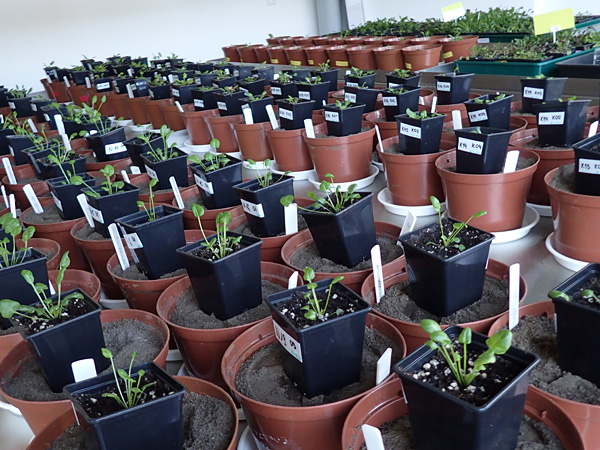AriaDNA: Adaptation of Arabidopsis halleri to metal-polluted soils: linking environmental, genomic, and phenotypic information
Summary
Phytoremediation is a sustainable way to mitigate societal and environmental harm from soil pollution with metal trace elements. Yet, limited knowledge of plant adaptation to excess metals in the soil limits the efficiency and broad application of this technique. In this interdisciplinary project the genetic basis and physiological mechanisms of zinc accumulation in a model species, Arabidopsis halleri, will be studied. Genes involved in metal homeostasis will be identified and their impact on metal uptake and allocation in plants from polluted and natural habitats will be assessed. In future, the identified genes can be i) engineered into high-biomass crops to enhance metal accumulation and support phytoremediation or ii) suppressed to increase agricultural productivity and food quality.
More information can be found on the project website.

Three-week-old cuttings of A. halleri directly before planting in the metalliferous soil.
Foto: B. Łopata.